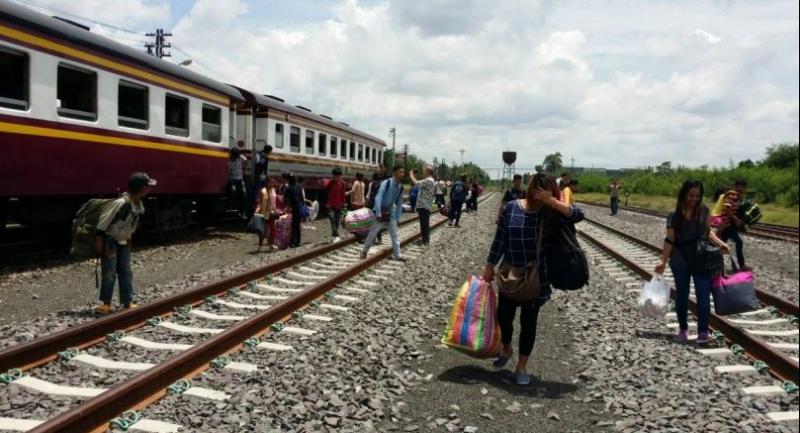PM orders review of migrant workers law

DECREE WILL NOT BE FULLY ENFORCED UNTIL END OF THE YEAR AS PRESSURE MOUNTS ON GOVERNMENT
MILLIONS of illegal migrants and their employers have been given a six-month reprieve as the government has bowed to pressure and postponed full enforcement of the tougher foreign-labour law until the end of this year.
Over the next four months, the Labour Ministry will also review the newly-introduced Executive Decree on Foreign Workers Management to make it easier to register and hire migrant workers.
Prime Minister General Prayut Chan-o-cha yesterday invoked his special powers as the National Council for Peace and Order (NCPO) chief, under Article 44, to suspend four key articles of the decree that prescribe much harsher penalties against offending migrants and their employers. “We have sympathy for the affected and thus we will prepare measures to minimise impacts,” Prayut said yesterday.
The decree took effect from June 23, threatening to fine employers at least Bt400,000 per illegal worker they hire. Workers, meanwhile, risk facing both a jail term and a hefty fine.
The introduction of the new law caused an uproar from various sides.
Several entrepreneurs have said that they will have to close their small businesses, at least temporarily, because the tough law will force them to terminate the employment of current workers and they will end up facing a labour shortage.
People who will lose their jobs have complained that they come to Thailand to work, not to commit crimes, and there is no good reason to force them into such a predicament.

Deputy Prime Minister Wissanu Krea-ngam told a press conference that the enforcement of the Executive Decree’s Articles 101, 102, 119 and 122, which prescribe the harsh penalties, would be suspended for six months.
“These four articles will instead take effect from January 1 next year. Until then, officers cannot cite the articles to fine or prosecute anyone,” he said.
‘Enough time for workers’
According to Wissanu, the six-month grace period should give enough time for workers to register themselves legally, for private companies to adjust themselves properly, and for authorities to think twice about the law.
The Labour Ministry would take the first four months to work on it before forwarding the amended law to the government, which would then take another two months to deliberate it, he said.
It remains unclear which parts of the law will be amended, but Government Spokesperson Lt-General Sansern Kaewkamnerd said that an “equilibrium point” should be made between labour facilitation and effective law enforcement.
Prayut said the ordinance was introduced to tackle human trafficking, a move necessary to ensure that Thailand will not face economic sanctions from the international community.
During a Facebook Live interview with the Nation Multimedia Group’s digital journalist Suthichai Yoon, the Labour Ministry’s permanent secretary Puntrik Smiti said yesterday that Thailand would need to comply with international laws and the country must stop using illegal labour.
She pointed out that if Thai employers continued hiring illegal workers, they might find it impossible to export their products.
“That’s why we need to adjust. We need to look into the future,” Puntrik said.
Thailand has been on the Tier 2 Watch List of the Trafficking in Persons report, which is compiled by the United States, for two consecutive years now. According to the reports, Thailand has not yet fully complied with the minimum standards on fighting human trafficking.
Puntrik estimated that there were about three million migrant workers in Thailand, half of whom are illegal workers.
But estimates by various other organisations suggest that the actual number of illegal workers in Thailand is much higher.
